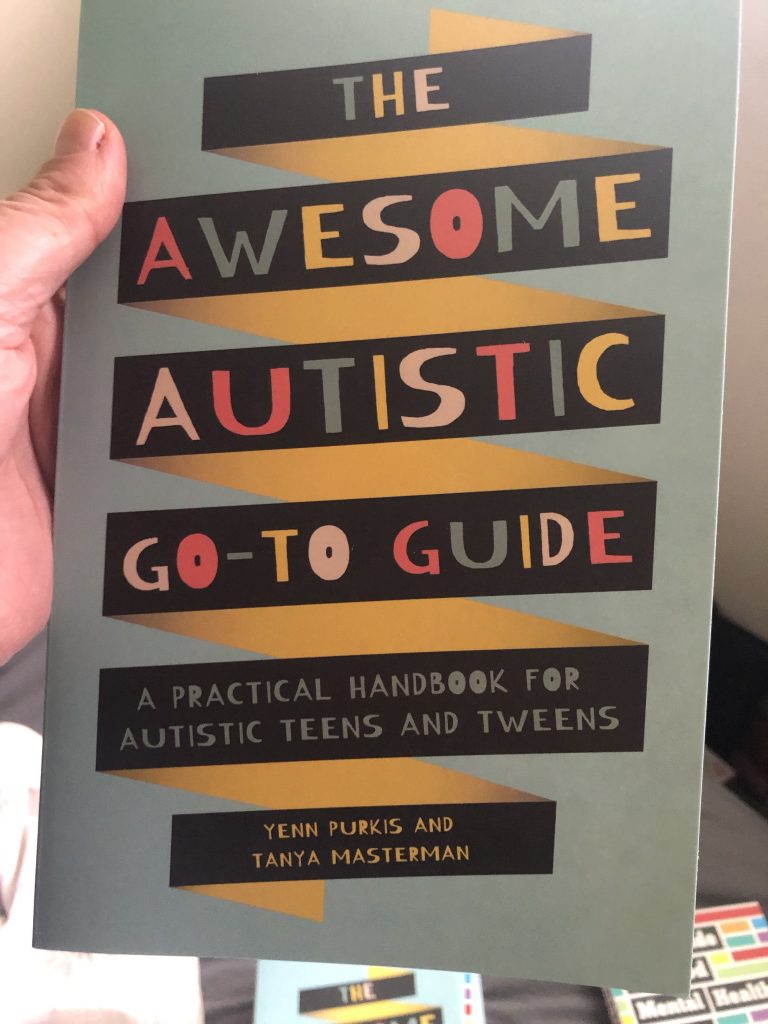Yenn Purkis is an autistic and non-binary author, advocate, public speaker and community leader. They also have a diagnosis of schizophrenia. They are the author of nine published books on elements of autism and blog regularly. Yenn is a public speaker of almost 20 years’ experience and has presented at a range of events including for TEDx Canberra in 2013. Yenn facilitates an autism support group which has been running since 2011. Yenn has a number of media engagements both in Australia and overseas. They have a strong social media presence and have been sharing a daily meme since 2014. They have a number of awards for their work including the 2016 ACT Volunteer of the Year and 2019 ACT Chief Minister’s Inclusion Award. This week Yenn discussed their recently-published book The Awesome Autistic Go-To Guide: A Practical Handbook for Autistic Teens and Tweens.
What gave you the idea to create this guide for teens/tweens?
We saw a lot of deficits focus for autistic children and young people, particularly through the diagnostic process, that needed countering. Autistic kids are so frequently told that they cannot achieve much or given the idea that they are a burden that we wanted to put something in the world which gave them more positive messages and helped them be proud to be themselves. Additionally, we wanted autistic young people to feel less isolated and have a sense of belonging. One evening, after one of my book launches, Tanya suggested I write a “welcome to the community” book, and we decided to cowrite, which worked beautifully.
The book description says the book “celebrates the strengths of understanding the world in a different way.” Can you give some examples of how you have reaped the benefits of understanding the world in a different way?
My honesty has been a huge asset throughout my life, as has my ability to see things in a logical manner. I also benefit from my autistic qualities through my capacity for creativity. I think my ability to write is a prodigious skill related to my autism. While I struggle with the concept of autistic superpowers, I do think my autism has given me some fairly useful gifts, and I think that this is true of others as well.
I think this book is especially relevant because it has Autistic authors. Can you speak about the significance/importance of Autistic authors delivering the messages in this book?
I think it is critical that this book is written by autistics. I think Tanya and I have a lot of insights into what it was like for us being autistic kids, so we can share a message that they can relate to. I think it is also important for parents to be engaging with this book – it is the parents who tend to buy it after all! Tanya is a parent of an autistic young person too, so she has a lot of insights from a parent’s perspective.
What do you hope Autistic readers gain from reading this book?
A greater sense of their value and worth, a strong understanding of their own profile, some strategies to take with them into life, confidence to self-advocate, and a sense that they are not alone.
What do you hope parents and family members of Autistic teens/tweens might gain from reading this book?
I hope parents and family members will understand their autistic kids better after reading this book and maybe see that there are lots of positives to autism too.
Imagine a future generation of Autistic adults who grew up having read this book. How might the world be different than it is now?
I think autistic people would probably have a lot more confidence and self-respect. The book builds pride and positive self-knowledge, so these are great qualities for any person and particularly autistic people.

